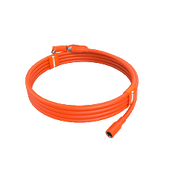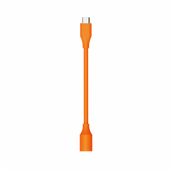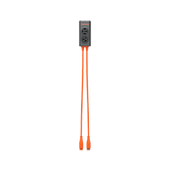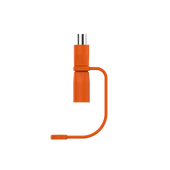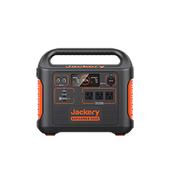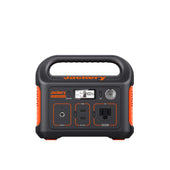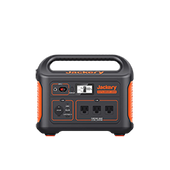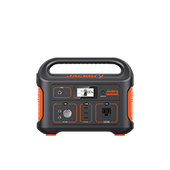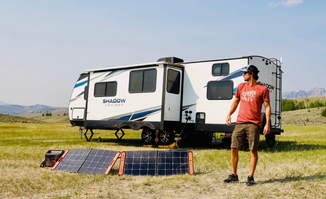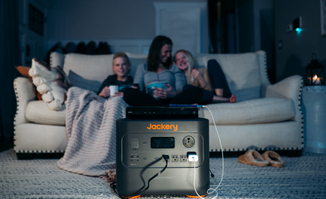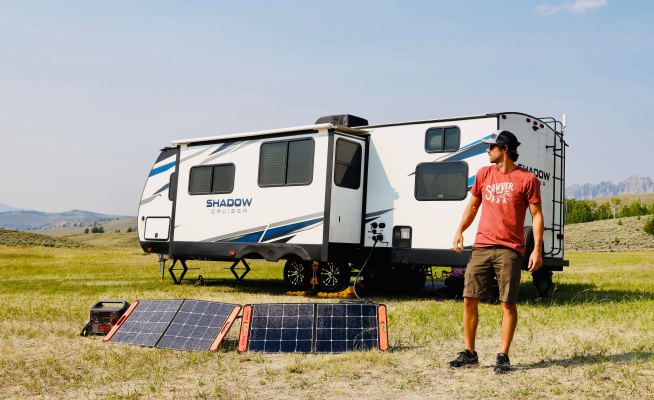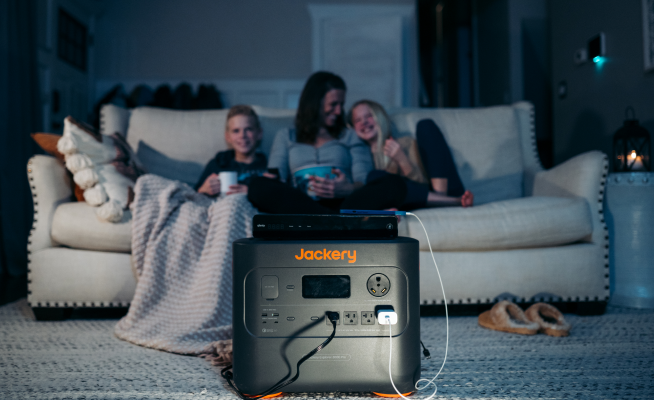Portable power suppliers such as inverter generators and traditional gasoline generators are a necessity for many Canadians seeking power on the go. However, people tend to have questions about the differences between inverters and generators when deciding on the best unit for their needs. A comprehensive understanding and evaluation of the key attributes are required to identify the optimal solution based on specific use cases and scenarios. This article aims to present an impartial analysis of inverters vs generators, outlining how their performance varies in different applications through comparisons. It also explores emerging portable solar generator generators using solar power from brands like Jackery, incorporating an inbuilt inverter as a sustainable “best of both worlds” option.
Inverter Generator and Generator: Overview, Mechanism, and Features
Before diving into the inverter vs generator comparison, we at Jackery recommend learning about their definitions and working mechanisms. A device that is portable and known as an inverter generator converts the direct current (DC) power from the engine into a modified sine wave alternating current (AC) power by using an inverter. The engine charges an internal lithium battery bank, which supplies DC to the high-frequency inverter module. A traditional generator, on the other hand, employs a direct current (DC) generator, often a brushed alternator, connected directly to the engine's crankshaft. The generator's intrinsic alternating current (AC) output is fed straight from the engine without voltage regulation or digital conditioning.
When comparing inverters vs generators, the distinction lies in the mechanism of power generation. Traditional generators directly connect the engine generator set to a rotating alternator. This mechanical linkage produces standard AC power through direct conversion of the engine's native alternating current without voltage regulation. Inverters introduce an intermediate battery charging and DC storage step before digital conversion to AC, producing a regulated voltage suited for electronics and appliances. Our team at Jackery recommends considering an inverter generator for applications requiring clean power source versatility, higher efficiencies, or portability. Of course, there are also new technologies on the market today, such as solar-compatible portable power stations, which will be discussed later.
The following comparisons outline the inverter vs generator features difference:
- Power Output and Efficiency
Inverters supply usable power at lower wattage but higher efficiency, with some 3000W models now reaching 75% fuel efficiency compared to typical generator rates under 40%. This efficiency translates to significant cost savings per unit of electricity produced.
- Portability
A major inverter vs generator difference. Advanced inverter designs leverage compact dimensions and weights under 100 lbs. for most residential units, allowing for transportation in smaller vehicles. Traditional generators commonly exceed 150 lbs., limiting mobility options for rugged job sites or outdoor use where weight impacts transportation.
- Cost Considerations and Maintenance
While upfront generator pricing undercuts inverters, their higher operating expenses through fuel and part replacements offset this premium within 2-3 years for heavy users. Ongoing generator maintenance requirements like oil changes incur further hidden expenses annually.
- Environmental Impact and Fuel Types
This is another key difference when comparing inverter vs generator. Inverters now accept interchangeable fuels, including gasoline, propane, and increasingly solar power – dramatically reducing emissions and dependence on non-renewables. Generators rely solely on gasoline and produce pollutants with each hour of operation.
- Safety Features and Reliability
Inverters maintain voltage regulation and deliver stable modified sine wave energy suited for electronics. However, generators may deliver continuous wattage required for industrial machinery or high-drain household appliances during lengthy outages.
- Technological Advancements and Future Trends
The latest inverters boast an impressive capacity and several-day run times on single batteries, enabling whole-home backups smaller than typical generators. Additional capacities can now power job sites remotely. Continued battery improvements will lower costs and increase adoption rates.
In summary, gasoline generators deliver higher power output, which is ideal for machinery. However, inverters produce cleaner power through greater efficiency, compact sizes, lower costs long-term, and emissions benefits. Especially for residential, outdoor, and eco applications, inverters easily win the inverter vs generator comparison. Evaluation of user needs determines the best option from inverter generator vs generator, as innovation propels both technologies' off-grid capabilities.
Difference Between Inverter and Generator in Various Use Case Scenarios
There are varying inverter vs generator performance attributes, applications, and suitability depending on use case scenarios. It is essential to comprehend the variations between these options to determine the perfect power solution.
- Performance in Residential Use
In residential settings, inverters and generators each have merits based on the situation. It is crucial to take into account the individual requirements and characteristics of each option when deciding which is the best choice for home energy supply.
- Power Stability for Home Appliances
Inverters offer cleaner modified sine wave energy that places less strain on sensitive electronics like TVs and computers commonly found in Canadian homes. Generators produce standard AC power, which can overload smaller household appliances if heavy fluctuations occur.
- Emergency Power Supply
Generators are better equipped to provide steady, robust power throughout an entire home during widespread outages. Their higher wattage output can reliably run appliances, heaters, and sump pumps to keep a house comfortable until grid restoration. However, the noise of generators makes them impractical for use within residential neighbourhoods where quiet is expected.
- Noise Levels for Residential Areas
Noise level is a key distinguishing factor in the inverter vs generator comparison. The quiet operation of inverters allows discreet emergency power without disturbing neighbours, respecting the peaceful atmosphere of residential communities everywhere in Canada. In contrast, generators can emit disruptive sounds travelling amongst tightly packed suburban homes.
- Commercial and Industrial Applications
In worksites and facilities with intensive power demands, specific capabilities compare inverter vs generator products. Advanced inverter designs now rival generator outputs for many commercial applications while maintaining higher efficiencies.
- Heavy-Duty Power Requirements
Traditional gasoline generators are more suitable when it comes to this aspect of power inverter vs generator. This is because they deliver high starting and continuous running watts ideally suited to machinery commonly found in Canada’s manufacturing, resource extraction, and construction industries. Their potent output powers heavy-load applications far exceeding most inverters’ limits.
- Continuous Operation
The extended fuel tank capacity of generators provides reliability through long, uninterrupted work shifts on remote industrial job sites, where quick reloading of fuel is impractical. However, new inverters pair diesel-generator-sized capacities with battery banks, enabling good run times.
- Portability for Job Sites
While heavier than inverters, some generator models equipped with durable wheels and handles retain mobility for powering tools away from fixed sources at dynamic commercial worksites.
3. Outdoor and Recreational Activities
Special attributes matter for activities removing individuals from grid access into Canada’s natural areas. Inverters excel at mobility through compact sizes and weight while also integrating renewable charging for sustainable backcountry tourism.
- Portability for Camping and RVs
Portability is where inverters win in the inverter vs generator comparison. Compact, lightweight inverters integrate easily into the mobile lifestyles of Canadian campers and RVers for powering built-in appliances and electronics with ease. Their scales avoid overburdening vehicles and boats with extra pounds.
- Quiet Operation for Outdoor Settings
By emitting minimal noise, inverters maintain the tranquil ambiance eco-tourists and nature lovers value within provincial and national parks, protected woods, and along rural trails. Traditional generators are louder, risking disturbing wildlife like endangered caribou herds in Northern Ontario reserves or songbirds nesting along West Coast trails.
- Fuel Efficiency for Prolonged Use
From superior energy efficiency, single fuel charges power inverters longer, a benefit when ranging through varied terrain on multi-day road trips, hikes, or paddles. Generator efficiency can reduce a lot depending on load, demanding more frequent refuelling, which is challenging in remote areas. New integrated fast-charging extends inverters' durations, surpassing generator run times.
- Environmental Sensitivity and Green Applications
As awareness expands around pollution impacts, specific technologies stand out. Inverters deliver reduced emissions and versatility through interchangeable fuels, including solar, supporting organizations' carbon-conscious mandates.
- Emissions and Eco-Friendliness
Locations like alpine zones and inland waterways demand minimizing air pollution footprints to protect ecosystems. Relative to gas generators, inverters curb emission particulate damaging delicate montane wildflowers or contaminating pristine Rocky Mountain streams.
- Fuel Type and Environmental Impact
This highlights the key inverter vs generator difference. While some generator models accept alternative fuels to lessen certain impacts, options remain more limited than the numerous energy sources inverters can harness through adaptable designs.
- Noise Pollution
The quiet operation of inverters better respects sensitive nature reserves by avoiding intrusive interruption of the natural quiet appreciated within wildlife areas and around outdoors enthusiasts seeking solace.
- Backup Power for Critical Systems
When backup power means safety and viability, strengths diverge. Large inverters now provide hospitals and data centers capacities exceeding outage risks with high reliability through equalized batteries.
- Reliability During Power Outages
Traditional generators provide steady, dependable power prized by critical infrastructure like hospitals for running essential equipment during emergencies without interruption. However, inverters pair advanced power conversion and battery banks to similarly deliver an uninterruptible backup for critical loads.
- Power Quality for Sensitive Equipment
Inverters excel when it comes to this as some systems benefit from their cleaner modified sine wave energy. They maintain delicate electronics in environments conducting sensitive work from laboratories to research.
- Scalability and Adaptability
The capability of certain inverter brands to link together increases output to cover fluctuating demand levels within institutions supporting whole communities across evolving needs. A major advantage when it comes to inverter vs generator. Modular designs facilitate scaling standby capacities safely exceeding single generators. Parallel connections further complement intermittent renewables.
Solar Generator with Built-in Inverter: The Best Solution
Emerging solar generator technology integrating an inverter offers the best of both worlds – clean renewable energy combined with versatile portable power. As a leader in this category, we at Jackery are committed to innovating sustainable energy solutions through high-performance solar generators to encourage greener lifestyles. As a reputed brand, we engineer durable solutions for residential, commercial, and outdoor use.
Our advanced products boast powerful backup from large batteries charging quickly via solar or wall power. Our product line delivers this technology through varied sizes for different needs, upholding reliability since defining this category. We relentlessly drive sustainable power forward. Our top 3 offerings include:
Commercial: Jackery Solar Generator 3000 Pro
Our flagship power station, Jackery Solar Generator 3000 Pro, handles multi-day backup for work sites and off-grid living with its massive 3024Wh capacity and 3000W output. Its key features include:
- As a top model for commercial off-grid use, it is trusted at remote oil/gas sites in Northern Alberta to reliably power safety and communication equipment.
- 3000W output can run heavy haul trucks during scheduled grid downtime at mining operations in Sudbury, minimizing production losses.
- The transfer switch seamlessly transitions between the onboard generator and grid to ensure uninterrupted smelting at Northwest Territories facilities.
- -20°C to 40°C (-4~104 ℉) rating allows year-round use of energizing ventilation at Yukon exploration tunnels protecting workers’ safety.
- Remote app monitoring allows tracking power consumption to allocate mobile resources swiftly for crews.
- 3+2-year warranty and certifications offer peace of mind regarding product performance and reliability.
Residential: Jackery Solar Generator 1000 Plus

The lightweight Jackery Solar Generator 1000 Plus balances portability and power with its 1264.64Wh capacity, fitting recreation, travel, and emergency needs. Its key characteristics include:
- 64Wh capacity provides multi-day backup for homes during seasonal storms that cause power outages.
- Compact 32-pound design easily fits in most vehicles to charge devices and power small appliances during transport to a cottage or camping trip.
- Expandable capacity with additional batteries allows powering electric tools for small home repairs and improvements.
- LFP battery maintains charge through extended cold winter nights for Canadians residing in remote northern communities(-10~45℃(14~113℉)).
- Multiple USB ports quickly charge several personal electronic devices simultaneously.
Outdoor: Jackery Solar Generator 300 Plus

At only 11 pounds, the compact Jackery Solar Generator 300 Plus packs a punch with 288Wh capacity(consisting of a Jackery Explorer 300 Plus Portable Power Station and a 40W solar panel), providing backup power on the go for adventurers and occasional users. Its top features include:
- Affordable price grows adoption among hikers,ensuring emergency contact on backcountry trails in Algonquin Provincial Park.
- 11lbsweight fuels photography along remote shores via a charged drone battery.
- Fast USB-C charging keeps smartphones powered for timely assistance on multi-day traverses of Nahanni National Park Reserve.
- 288Wh output lights temporary work shelters through brief outages at remote arctic radio repeater sites.
- Rugged design withstands bumps during transport powering field labs.
Conclusion
Overall, when it comes to inverter vs generator, both have their merits depending on the application. While generators deliver stronger power output essential for industrial and emergency needs, inverters provide cleaner energy through superior fuel efficiency and lower emissions suited for residential, recreational, and environmentally sensitive use cases. Emerging solar generator technology bridges this divide, delivering versatile, portable power from renewable solar energy. As a leader in this growing industry, Jackery offers many invaluable solutions for off-grid independence and outdoor exploration. Feel free to discover our complete selection of dependable products on our website and locate the perfect power solution that suits your individual requirements.







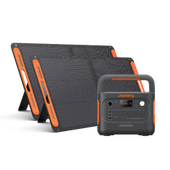



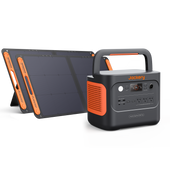

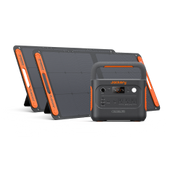
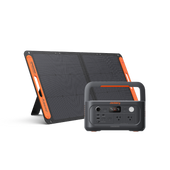
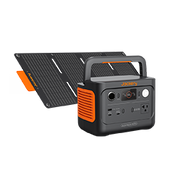

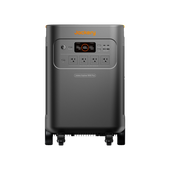

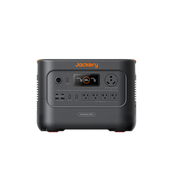
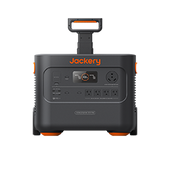
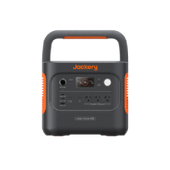
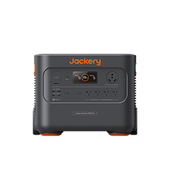

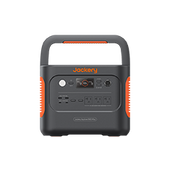
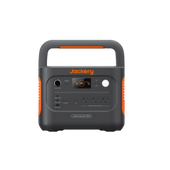
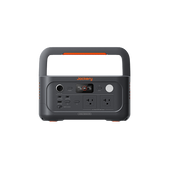

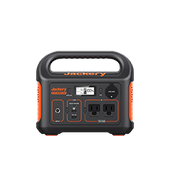
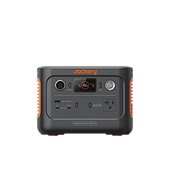

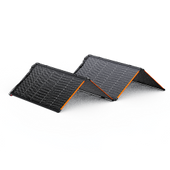
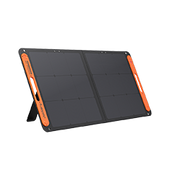


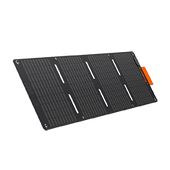

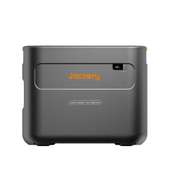
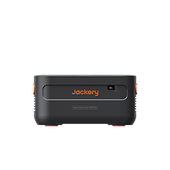
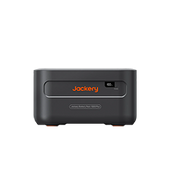
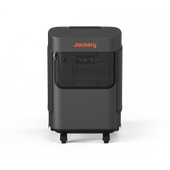
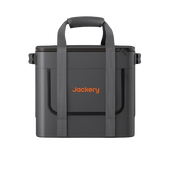
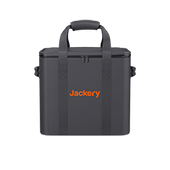
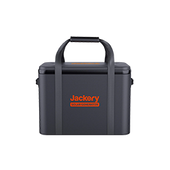
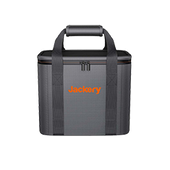
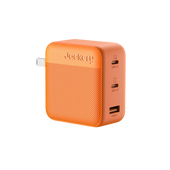
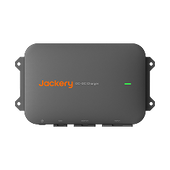
![[Add-on] Jackery Manual Transfer Switch for Explorer 5000 Plus](http://ca.jackery.com/cdn/shop/files/add-on-jackery-manual-transfer-switch-for-5000-plus-240V.webp?v=1757043692&width=170)
